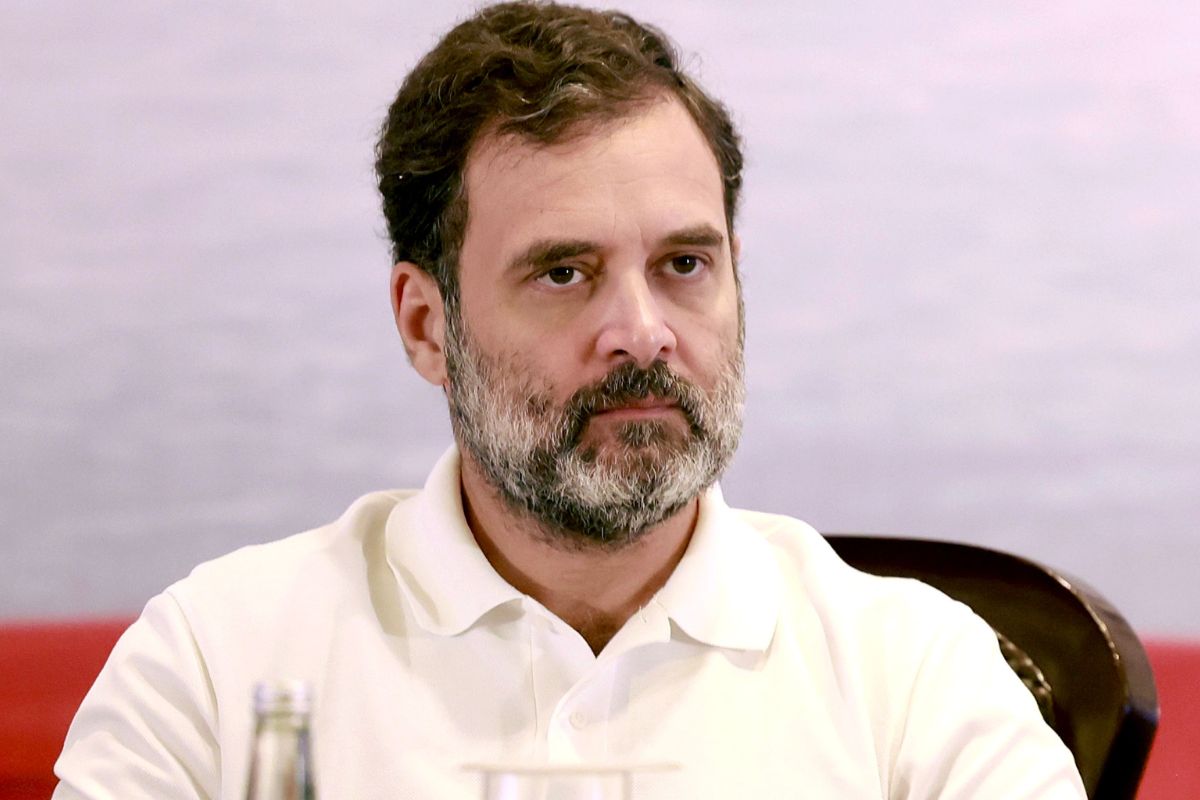Rahul Gandhi hits out at PM, Adani in Rae Bareli
Congress leader Rahul Gandhi on Friday hit out against Prime Minister Narendra Modi and Industrialist Gautam Adani on the second day of his Rae Bareli visit.
In March, the magisterial court had convicted Gandhi for his remarks on ‘Modi’ surname that he had made during a public gathering before the 2019 General Elections to the Lok Sabha.

Congress leader Rahul Gandhi (ANI)
The Supreme Court on Tuesday posted for July 21 for hearing Congress leader Rahul Gandhi’s plea challenging the Gujarat High Court order refusing to stay a Surat court’s decision convicting him in a criminal defamation case and sentencing him to two years in jail over his ‘Modi surname’ remark.
Heading a bench Chief Justice DY Chandrachud agreed to hear Rahul Gandhi’s plea on Friday (July 21) after senior advocate Abhishek Manu Singhvi mentioned it for urgent listing.
Advertisement
A Surat magistrate court had on March 23 convicted Rahul Gandhi in a criminal defamation case and sentenced him to two years in jail. The Surat Session’s court on April 20 upheld the magistrate court’s order.
Advertisement
Following his conviction in the case, Rahul Gandhi was disqualified as a Lok Sabha member on March 24 under the provisions of the Representation of People Act. Rahul was elected to the Lok Sabha from Wayanad parliamentary constituency in Kerala.
Seeking the stay of the High Court order, Rahul Gandhi in his petition has said that the High Court judgment “has no parallel or precedent in the jurisprudence of the law of defamation.”
Rahul Gandhi in his petition has said that “Unprecedentedly, in a case of criminal defamation, a maximum sentence of two years has been imposed. This itself is a rarest of rare occurrence.”
Describing as “not only curious but extremely significant, indeed sinister,” Gandhi in his petition has said that all earlier cases, including the present one relating to his 2019 speech during general election to Lok Sabha were filed by members and office bearers of the ruling party.
Petition states that the surname ‘Modi’ in different parts of the country, encompassed different communities and sub-communities, which usually have no commonality or uniformity at all. The Modi surname belonged to various castes.
The complainant, the petition says, who simply has a ‘Modi’ surname, did not prove that he was prejudiced or damaged in any specific or personal sense.
The Gujarat High Court had on July 7 affirmed the decision of a Surat Sessions court, which had declined to put on hold a magisterial court order on March 23, 2023, convicting Gandhi and handing out the maximum punishment provided for criminal defamation under the Indian Penal Code.
In his judgement, Additional Sessions judge Robin P Mogera had cited Gandhi’s stature as a member of parliament and former chief of the country’s second-largest political party and said he should have been more careful.
Additional Sessions judge cited prima facie evidence and observations of the trial court and said it transpires that Rahul Gandhi made certain derogatory remarks against Prime Minister Narendra Modi apart from comparing people with the same surname with thieves.
In March, the magisterial court had convicted Gandhi for his remarks on ‘Modi’ surname that he had made during a public gathering before the 2019 General Elections to the Lok Sabha.
Purnesh Modi – the complainant – on whose complaint the Surat magistrate court had convicted and sentenced Rahul Gandhi to two-year jail has already filed a caveat in the Supreme Court seeking to be heard as and when the Congress leader’s plea against the High Court order is taken up for hearing.
Advertisement